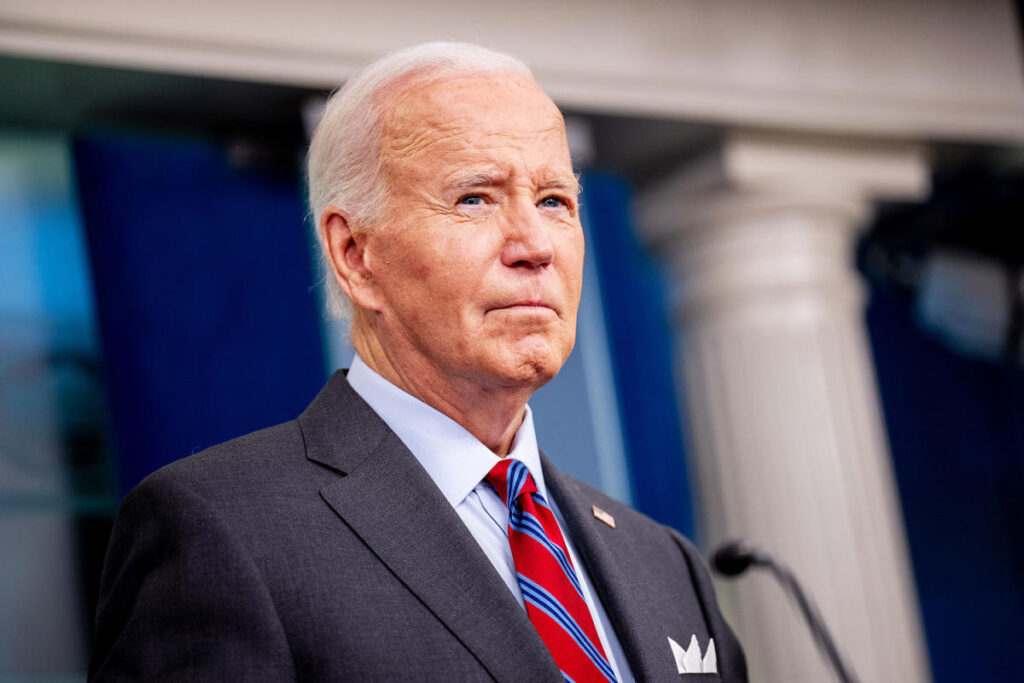President Joe Biden is embarking on a significant trip to Germany, aiming to articulate his foreign policy vision ahead of the upcoming election. Upon his arrival in Berlin, he will be welcomed with military honors and is set to receive Germany’s highest award, the Grand Cross of the Order of Merit, from President Frank-Walter Steinmeier. This recognition acknowledges Biden’s extensive contributions to fostering German-American relations and his influential role in shaping transatlantic partnerships over his five-decade political career. This honor highlights the camaraderie and collaborative spirit that exists between the two nations.
Biden’s itinerary for the brief visit includes a crucial meeting with German Chancellor Olaf Scholz, where they aim to address mutual military objectives, as well as economic and trade initiatives. Their discussions come on the heels of Scholz’s significant involvement in a recent international prisoner swap, demonstrating his willingness to collaborate with the U.S. on complex diplomatic challenges. Earlier this year, Biden and Vice President Kamala Harris successfully persuaded Scholz to engage in negotiations regarding a Russian prisoner, which subsequently facilitated a large-scale exchange that involved numerous nations, showcasing a united front in international diplomacy.
The importance of Biden’s visit is underscored by its timing, as he prepares to engage with leaders from France and Britain in discussions primarily centered on support for Ukraine amid its ongoing conflict with Russia. The U.S. has committed to bolstering Ukraine’s defense efforts, highlighted by Biden’s recent announcement of a substantial $425 million aid package aimed at enhancing military capabilities with air-to-ground munitions and armored vehicles. This ongoing support is critical, particularly as tension continues to escalate in Eastern Europe.
In addition to military discussions, Biden is also expected to unveil an exchange program intended to foster deeper educational and cultural ties between the U.S. and Germany. Additionally, initiatives aimed at driving private sector investment in emerging technologies are likely to be highlighted, emphasizing the potential for transatlantic cooperation in innovation and economic growth. This holistic approach aims to strengthen not only military alliances but also economic partnerships, ensuring that both nations can thrive in an increasingly competitive global landscape.
Although Biden’s visit to Berlin is brief, it represents a critical engagement with European partners, especially in light of the ongoing conflict in Ukraine and broader geopolitical tensions. His prior commitments, including overseeing the federal response to Hurricane Milton, led to the postponement of this trip, which now serves as a pivotal moment for reinforcing alliances. The planned discussions are expected to lay the groundwork for future collaborative efforts in multiple spheres, particularly in addressing the challenges posed by aggressor states.
In summary, Biden’s upcoming visit to Germany encompasses award recognition, strategic discussions with key leaders, and initiatives designed to bolster cooperation between the U.S. and its European allies. Through this trip, Biden aims to convey a clear message about the importance of continued transatlantic unity and the need for coordinated action in the face of global challenges. The outcomes of this visit could shape the contours of U.S. foreign policy in Europe as he prepares for the upcoming election, showcasing a commitment to maintaining strong diplomatic relations and a proactive stance in confronting international issues.

